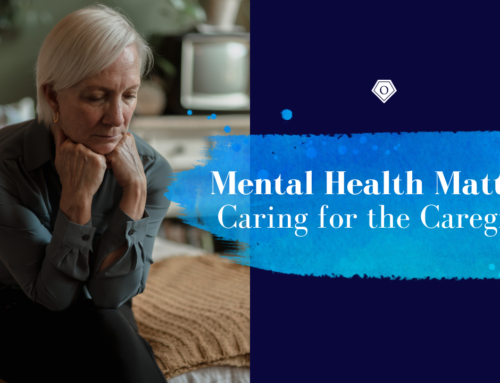Embarking on the journey of becoming a caregiver for a parent is a profound and complex experience that often presents both challenges and opportunities for personal growth. This role reversal, where the child assumes responsibility for caring for the person who once cared for them, introduces a unique set of emotional, practical, and ethical considerations.
Asking the right questions can help clarify expectations, understand needs, and ensure effective communication. Here are a few to get you started on your journey:
What specific care do you need?
Understand the level of care required, including medical needs, daily tasks, and emotional support.
Have you discussed your medical history with your healthcare provider?
Ensure you’re aware of any existing medical conditions, medications, and treatments.
What are your preferences for living arrangements?
Discuss whether your parent wishes to stay at home, move in with you, or explore other living options.
What are your long-term goals and wishes?
Talk about their desires for quality of life, end-of-life care, and any advance directives they may have in place.
Do you have legal and financial plans in order?
Address matters such as power of attorney, wills, and estate planning.
Are there any cultural or religious considerations for your care?
Understand their beliefs and preferences that may impact their care and decisions.
What daily routines and activities are important to you?
Ensure their hobbies, social interactions, and personal preferences are integrated into their care plan.
What emotions or concerns do you have about me being your caregiver?
Openly discuss any fears, worries, or feelings they might have about the caregiving arrangement.
How do you want to communicate about your care?
Establish effective communication methods for discussing health updates, decisions, and changes in care needs.
Are there specific friends or family members you want involved in your care?
Identify their support network and how they want loved ones to be involved.
Have you explored available community resources and support services?
Research local agencies, support groups, and services that can assist both of you in the caregiving journey.
What boundaries and privacy considerations should we establish?
Discuss how to respect each other’s personal space and privacy while ensuring safety and care.
How can we maintain a balance between your independence and my support?
Talk about ways to empower them while still offering necessary assistance.
What are your preferences regarding medical decision-making?
Understand their wishes for medical treatments, procedures, and interventions.
Do you have any concerns about my well-being while I’m caregiving?
Address their worries about your own health, work, and personal life.
Remember that open and ongoing communication is critical. These questions serve as a starting point for meaningful conversations and help ensure that the parent and the child-caregiver are on the same page as they navigate this challenging and rewarding journey together.
As the dynamics of the parent-child relationship evolve in the face of changing health needs and circumstances, navigating the path of caregiving requires compassion, resilience, and a willingness to confront many questions and uncertainties.
Explore the following questions to get the support and answers you need to navigate this new season of life.
Why is this happening?
You might need clarification about why your parents need care and what has led to their current situation. You may want to understand the medical or emotional reasons behind your parents’ needs. Use the list in the section above to get a clearer picture.
What is my role as a caregiver?
You might wonder about your specific tasks and responsibilities as caregivers. You may need clarification about how much care you must provide and what it entails. These are good concerns to have. Talking with your parent and their healthcare provider can help get you answers.
Will I be able to handle it?
The idea of caregiving can be overwhelming, especially if you have never taken on such responsibilities. You might question your ability to manage your life while caring for your parents. Joining support groups (in person or online) can help you understand what it’s like and what’s to come.
How will this affect my own life?
You might worry about how caregiving will impact your personal life, including studies, career, social activities, and personal relationships. Joining support groups can help you navigate these life changes. It will likely take time (and support) to learn how to balance your needs and caregiving.
What resources are available to help me?
You might be unaware of the various support systems and resources available for caregivers, such as local agencies, support groups, respite care, and healthcare professionals. Learn how care is covered through insurance so you have options going forward and ask health care providers what’s possible.
How can I balance my own needs with caregiving?
You may be concerned about your well-being and how to maintain a balance between your needs and the needs of your parents. It is important for caregivers to maintain their own health care appointments for their physical and emotional health. You cannot pour from an empty cup. Learning this balance may take time, but the sooner you prioritize your wellbeing the easier it will be to see when it’s time to ask for caregiver support whether it’s respite care or regular home health care.
What if I don’t have the time?
You might worry about your ability to manage caregiving responsibilities alongside your existing commitments, like work, school, and personal life. If you do not have enough time to manage your loved one’s needs you will want to look into options like home health care, senior day programs, or even assisted living facilities. Know your options so everyone can get the level of support they need.
How can I talk to my parents about their needs?
You might need help with how to initiate conversations with their parents about their changing needs, as it can be a sensitive and challenging topic to broach. Often, personal counseling or support groups can help you navigate big questions. Don’t wait to get support. You can even join online support groups.
What if I make a mistake or can’t meet their needs?
You may fear making errors or being unable to provide the necessary care, which could impact your parents’ well-being. Understanding your parent’s level of care will help you understand if you can meet their needs. If you cannot, then it opens the door for you to explore services like home health care and other services.
What kind of emotional challenges might I face?
You might not be prepared for the emotional toll that caregiving can take, including feelings of guilt, stress, frustration, and sadness. It’s important to maintain your physical and emotional health as caregiving is very taxing. You will also want to join support groups where people can understand what you are going through.
What legal and financial aspects should I consider?
You may have questions about legal and financial matters, such as power of attorney, estate planning, medical decisions, and financial support for caregiving. Do not wait to have these conversations.
Will I have to give up my dreams and goals?
You might worry that their own aspirations and dreams will be compromised due to their caregiving responsibilities. Your life may change, but the right support can ensure you both thrive.
It’s vital for children who are becoming caregivers for their parents to seek resources, support, and advice from professionals, support groups, and organizations specializing in caregiving. Open conversations with your parents and other family members about expectations, boundaries, and available resources can help address many of these questions and concerns.

Choosing long-term care is a burden that often falls to adult children and family caregivers. Our team is here to support you throughout the journey. Download our booklet to explore options that are right for your aging loved one and family.
Wondering what type of long-term care is best for you or your loved one? Our free booklet will help you evaluate the differences and costs between home care, nursing homes and assisted living facilities.






